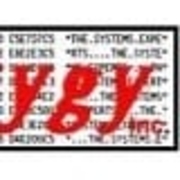

CA Datacom and BMC AMI DevX compete in data management and development environments. CA Datacom seems more favorable for those concerned about pricing and support, while BMC AMI DevX, recognized for its strong feature set, may be superior for those prioritizing functionality.
Features: CA Datacom is valued for its data processing speed, robust backup functions, and suitability for high-volume transactions. BMC AMI DevX offers advanced development tools, seamless integration capabilities, and enhanced application lifecycle management.
Room for Improvement: CA Datacom could enhance its automated deployment capabilities and refine support for less technical users. It might also benefit from more development-oriented features. BMC AMI DevX could improve by offering more competitive pricing, reducing complexity in its integration process, and enhancing the intuitiveness of its interface for new users.
Ease of Deployment and Customer Service: CA Datacom has straightforward deployment but may require significant technical expertise, with reliable customer service focusing on quick resolution. BMC AMI DevX provides a more automated setup with proactive customer service, offering a potentially smoother onboarding experience.
Pricing and ROI: CA Datacom generally involves lower initial setup costs, suitable for budget-conscious environments, with reliable ROI. BMC AMI DevX, though possibly higher in initial cost, offers features that could justify the investment, promising a strong ROI for organizations fully leveraging its capabilities.
| Product | Market Share (%) |
|---|---|
| BMC AMI DevX | 2.1% |
| CA Datacom | 1.5% |
| Other | 96.4% |

| Company Size | Count |
|---|---|
| Small Business | 6 |
| Large Enterprise | 16 |
| Company Size | Count |
|---|---|
| Large Enterprise | 7 |
BMC AMI DevX is a comprehensive solution enhancing code management and testing efficiency. It offers debugging capabilities within financial applications and integrates data management seamlessly, serving major banking sectors with reliable performance.
AMI DevX is tailored for banking industries, optimizing application debugging in COBOL and enhancing data handling in robust financial systems. It simplifies mainframe data management with real-time insights, improving efficiency through editing and cloning functionalities. The tool's integration with Compuware File-AID for IMS and DB2 ensures streamlined development processes. Challenges include a steep DB2 learning curve and initial setup complexities, with technical support inconsistencies and steep pricing impacting affordability. Despite this, its valuable features significantly support large banking operations.
What features make BMC AMI DevX valuable?In large banking sectors, BMC AMI DevX is integral for grants and loans-related applications. Its robust nature supports financial systems, offering debugging for COBOL, updating data in Compuware File-AID for IMS, and integrating DB2. Users implement this for exceptional data management and application reliability.
We monitor all Database Development and Management reviews to prevent fraudulent reviews and keep review quality high. We do not post reviews by company employees or direct competitors. We validate each review for authenticity via cross-reference with LinkedIn, and personal follow-up with the reviewer when necessary.